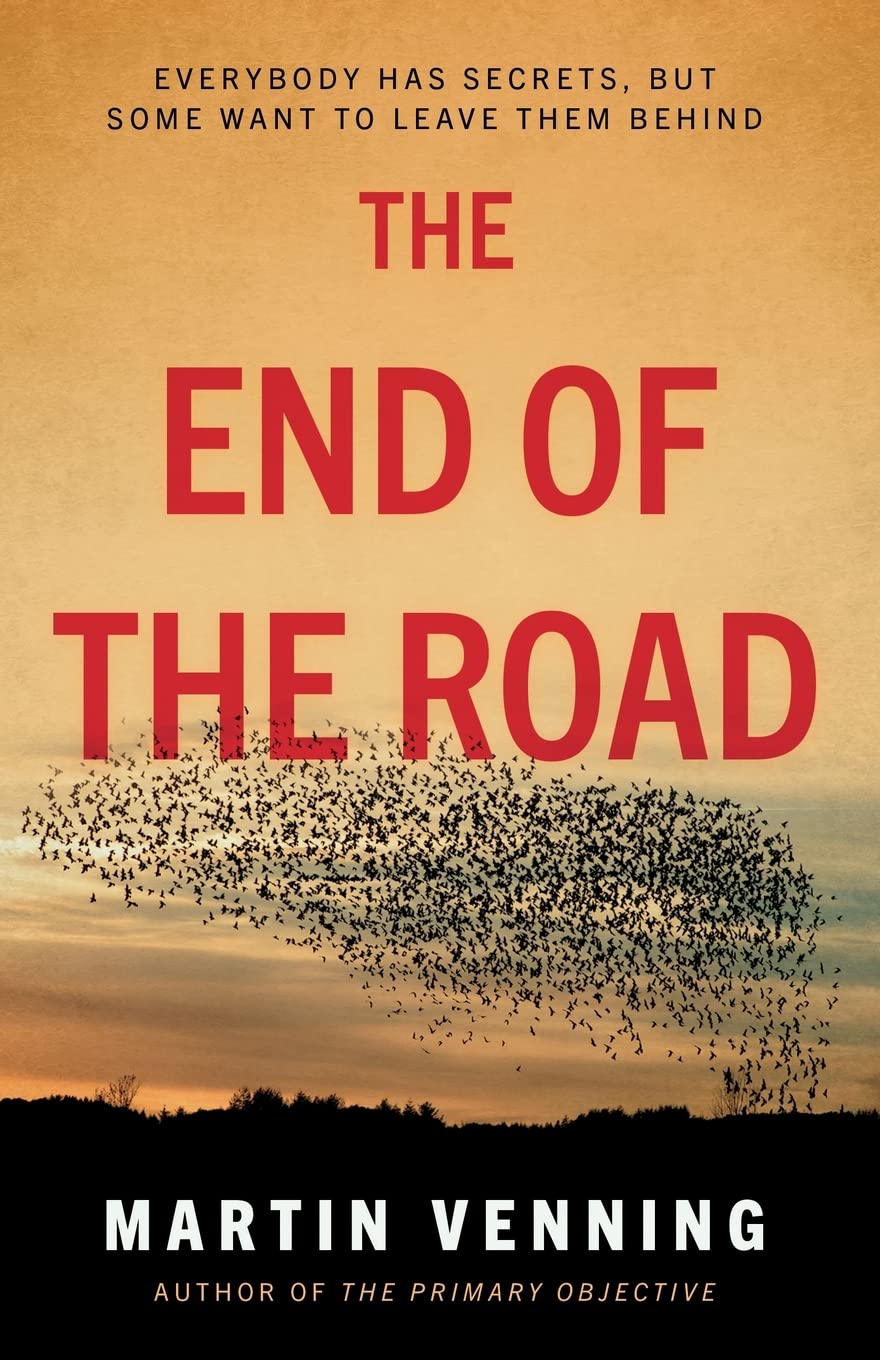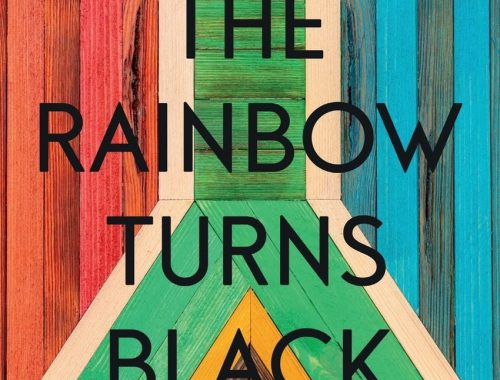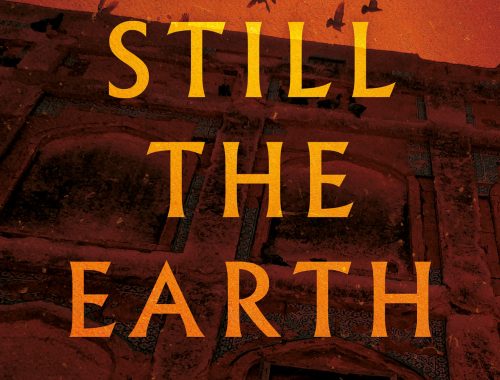The End of the Road

Martin Venning
They say life is a journey, but what happens when you get to the end of the road? Terminally ill eminent Oxford professor, Des Kelly, develops a new technology for sustainable energy that can address environmental pollution and global warming. His discovery will make the global oil industry obsolete. International vested interests compete to control it and acquire his research through persuasion and harassment, trying to find the lever that will secure his co-operation. But facing his own imminent mortality and unknown to his colleagues, Kelly’s ambition is to control the timing and circumstances of his death by enrolling with a voluntary euthanasia company. As he plans his demise, he is asked to mentor a young Russian scientist who has defected to the West, bringing complementary knowledge that can accelerate the commercial application of his innovation. Work pressures and Kelly’s arrangements for assisted dying on a remote Danish island lead to unexpected results – affecting family, friends, work colleagues and people he hasn’t met in different parts of the world. The process of preparation forces him to confront some of his innermost beliefs and insecurities but leads him to his most important finding – what happens after death – and answers the conundrum: can a restless spirit ever find contentment?
Extract
He picked up his mobile and texted her a short message: “I’ve done it!”, followed by a smiley emoji.
Message sent. It was the end of an exhausting day. Time to sign off, shut down his computer and make his way home to his comfortable, if slightly anonymous, residence in the Thames Valley. He paused, looking at his reflection in the glass panel which formed one of the boundaries of his personal space.
For a man of his age, he still had a good crop of grey hair (admittedly with flecks of white), and a freshly grown beard and sunken eyes gave him what he considered an unjustifiably moody look.
No, he didn’t feel upset, just worn out. It was time to raise his game for the journey home.
As he started to swap his white lab coat for a more sober tweed jacket and anorak, his assistant, Dr Jakeman (Jake) Roberts, walked into his office.
“Glad I caught you, Des, just taken a call from my alma mater at Stanford. They are looking to set up a conference early next year on new commercial applications from industrial waste. They want us – you and/or me, ‘someone’ – to give a keynote on the future of the industry; probably nothing more than domesticating small-scale community nuclear power stations, AI, that sort of thing.”
“Do you think we should do it?”
“Well, on balance, I think doing these things from time to time is a good idea. After all, you are not talking to a room of postgrads at Stanford. These are money men with deep pockets looking for the next big deal. If we impress, then it offers a shortcut to long-term finance without the normal bullshit commitments and form filling we get from the government here. It’s also a great opportunity to show those guys that innovation is not defined by initiatives invented over there.”
Kelly was preoccupied and, at that moment, not engaged.
“OK Jake, give them a provisional acceptance for now. We’ve got a bit more time to think through how we want to play it. I understand you’d quite like to take it on, especially as you could combine a trip with a visit to see your mum and dad in Oakland.”
Roberts nodded, smiled, and moved towards the office door.
He hesitated, turning to Kelly.
“Des – sorry to be a bit personal – are you all right?”
Kelly fixed him with a steely look.
“If you have spent the afternoon studying a spreadsheet on micromovements of emissions from fifty-year-old contaminated rods, you get to look like me.”
Roberts laughed.
“Yes, and I bet you will be coming to me to calculate the rate of absorption into storage waters in a couple of days.”
“Careful what you wish for.”
Kelly followed him out, closing the door of his glass-walled office and made his way past the four rows of desks occupied by members of his team, nodding to the one or two who were still focused on their screens.
“Night, Jake. Let’s grab a coffee in the morning.”
“Night. Hope you feel brighter after a good sleep.”
“Sure I will. There’s nothing a couple of glasses of Mouton Rothschild won’t fix.”
If only it was that simple.
Cocooned in his car for the drive home, Kelly normally had the six o’clock radio news on, but tonight he just wanted to close himself off from the world as much as he was able to do, heading south on the A34 towards Newbury. This was not a night to shout out at the latest mad utterances of the prime minister but was a moment for introspection and reflection on his predicament. Looking at his music selection, Mahler’s ‘5th Symphony’ seemed to capture his mood best, especially with a winter squall enveloping his windscreen and the cloudy day fading into night.
What to do? He would need to tell his boss, Sir Gavin Laidlaw, at the Lauriston Foundation, who would be duty bound to tell his partners at the Nuclear Decommissioning Authority, Ministry of Defence and their colleagues in the energy department who in turn would in all likelihood tell the Americans. Maybe he should issue a press release? That way they might all get to hear his explanation of his situation and not how it might get to be interpreted by other people. And what about Sue and the children? For her, it would be an inconvenience. She would probably seek reassurance that the pension was in place and want a date when he was going into hospital, either to make sure she had a reserve bridge partner in place or to make alternative arrangements for her dog to be walked in the evenings. He might get a more sympathetic response from Miles and Abigail, but they had their own lives – flats, lovers, hopes and fears, where his news would only be a passing footnote in their own experience. Strangely he was comfortable with that. He respected their independence and certainly didn’t want them grieving his loss.
He had now reached the exit that led to his village. Home was just a few minutes from here. He expected Sue would be arriving about the same time, so whoever was there first would be expected to pull some dinner out of the freezer and get Milo the Rottweiler out to do his business.
So what was the answer? He remembered his Yorkshire father’s words, “when in doubt, do now’t”. The stakes were high; once the information was released it was out there and he would no longer be in control. Frozen dinner prepared and eaten, message from the missus confirming the assignation with the choral society received, Milo’s comfort restored, it was time to return to Mahler in the front room armed with a glass of claret, a quick look at the domestic CCTV footage and LinkedIn on his phone as well as the latest copy of Private Eye for entertainment.

Publisher: Matador
Publication Date: 30th November 2021
Format: Paperback
Pages: 504
Genre: Thriller
Age: Adult
Reviewer: N/A
Source: N/A
Ciaran and the Crystal Spheres
Shenkin
You May Also Like

When The Rainbow Turns Black
November 25, 2022
And Still The Earth Turns
April 25, 2023
